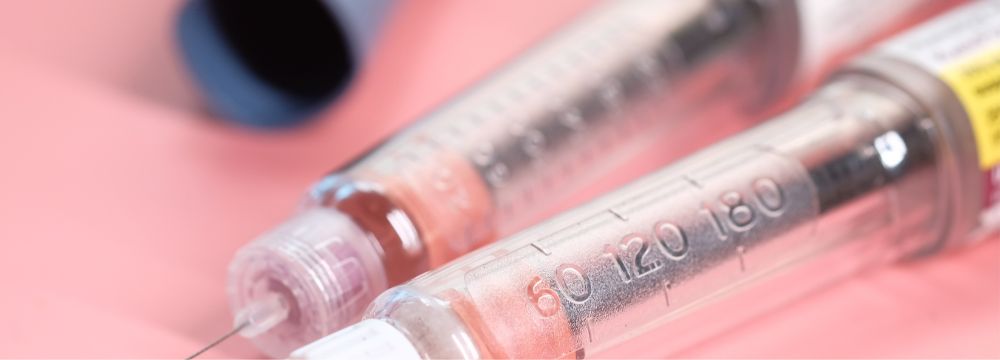
Dr. Jacobs’ 6 Key Points
- Zepbound™ is the weight loss version of Mounjaro™, Lilly’s wildly popular diabetes medication prescribed off-label for weight loss.
- This is a GLP-1 receptor agonist like Wegovy® but using a different compound (tirzepatide vs semaglutide).
- The risk profile of Zepbound is similar to other weight loss drugs currently available.
- This medication may be slightly more effective than Wegovy. However, they are virtually interchangeable, and some patients may do better with one or the other.
- As with any weight loss option, patients must start changing their lifestyle through diet and exercise. Very obese patients should consider bariatric surgery.
- Bariatric patients can speak to Dr. Jacobs about using medication symbiotically with their surgery to improve or maintain results.
It was a day we all knew was near. Eli Lilly’s Mounjaro was so popular as an off-label weight loss intervention that a weight loss-approved version had to be on the horizon. Wegovy, the semaglutide injection approved for weight loss, had been on the market for almost a year and has become a household name in the United States and worldwide. With the approval of Zepbound, Lilly now has a medicine that can be prescribed for its approved use and joins the ranks of this new class of blockbuster drugs.
As with Mounjaro, it’s essential to understand exactly what this drug is. Originally developed to lower blood sugar by stimulating GLP-1 receptors in the body, Tirzepatide showed excellent promise as a diabetes medication and, in 2023, took off during the weight loss medication craze. Clinical trials focusing on weight loss potential have shown that upwards of 1/3 of patients can experience weight loss of up to 25%. On average, people lost 48 lbs. at the highest dose, while at the lowest dose, the average weight loss was 34 lbs. The average patient weight was 231lbs.
Similar to other GLP-1 receptor agonists, the risks and considerations of the drug include a laundry list of gastrointestinal issues, some of which can be severe. Most patients experiencing adverse effects had nausea, diarrhea, vomiting, constipation, abdominal pain, and GERD. These side effects typically increase with an increased dose, generally prescribed after a month on the previous dose. For most, these side effects tend to diminish with time. However, some patients did drop out of the study as a result.
With that said, some severe potential side effects¹ can be experienced with these weight loss drugs. First, for some, these GI issues are significant enough to cause a lifestyle impediment. Others develop pancreatitis or gallbladder disease that can be very problematic. We have also seen cases of gastroparesis or stomach paralysis. While these all tend to resolve once the medication is ceased, the flipside is that patients will likely begin to regain weight once they no longer have their medication to rely on.
Are Weight Loss Medications Harmful?
Weight loss medications like Wegovy and Zepbound are not necessarily harmful as much as they need to be closely monitored for these potentially severe side effects. We see them as a great benefit for patients on the lower end of the obesity scale, and we also see the potential for using these drugs in bariatric patients who have regained some weight or are looking to continue their weight loss over the longer term. Combined with other weight loss therapies, we expect excellent results and look forward to what’s ahead.
However, we also must discuss the suitability of Zepbound for patients who are severely obese, particularly those who are above a BMI of 40. Even 25% body weight loss may not be enough for these patients to improve or eliminate their comorbidities or get them into their goal BMI range. To be sure, taking these medications before bariatric surgery will reduce perioperative and postoperative risk, but it’s unlikely that these medications alone will be enough to solve their concerns.
We should also discuss these medications in the context of younger adults and adolescents, a growing number of whom are suffering from obesity, sometimes severe. We do not know the viability of taking these drugs over the long term. Can someone take these drugs for 30 or 40 years? Or should they?
Lastly is the cost of the drug. According to Lilly, the monthly cost of Zepbound is over $1000, which, while 20% lower than the semaglutide equivalent, is still significant. If insurance covers the prescription, this cost can be significantly lower. For those with insurance that does not cover Zepbound, the drug may be available for about half its lift list price. Consider the cash pay and insurance cost for bariatric surgery, particularly the gastric sleeve, to compare out-of-pocket expenses.
As discussed in our weight loss drug overview blog, these medications represent a significant first step toward managing excess weight and obesity in the United States. They are potentially suitable as a short or medium-term boost to weight loss efforts if exercise and diet have not achieved the expected results. We also see it as an excellent adjunctive therapy for bariatric surgery patients before or after surgery to help them lose or maintain weight.
Most importantly, as with bariatric surgery, we can’t stress enough that weight loss medications are not the be-all and end-all. Patients need to understand their health situation and take control through improved diet and exercise. These efforts are necessary for any weight loss intervention to succeed.
The Next Step
It’s essential to work with a qualified weight loss specialist like Dr. Jacobs, who has a breadth of weight loss options available for his patients. For some, lifestyle changes may be all that are needed. For some, weight loss drugs like Zepbound or Wegovy may be precisely what is necessary for them to achieve their goals. For others, bariatric surgery may be the only suitable option to lose the weight that they need to resolve their comorbidities.
We look forward to seeing you at our office for a consultation and helping you with your weight loss goals.
Reference:
- Zepbound. Prescribing Information. Lilly USA, LLC.





